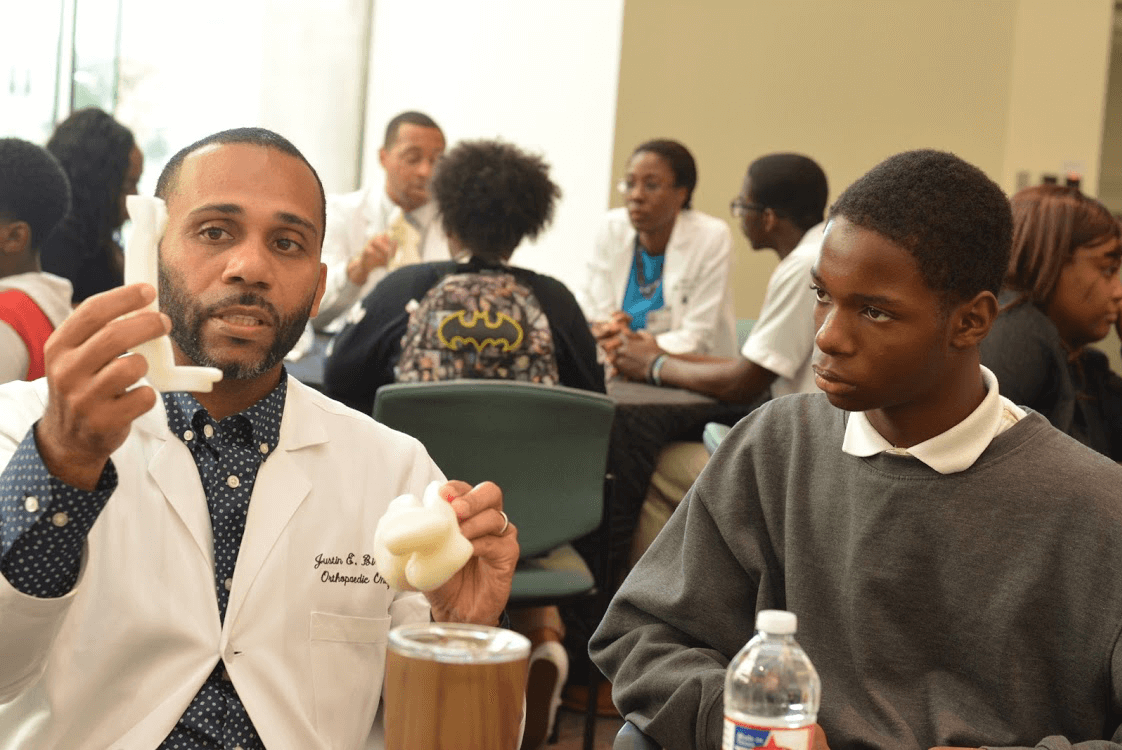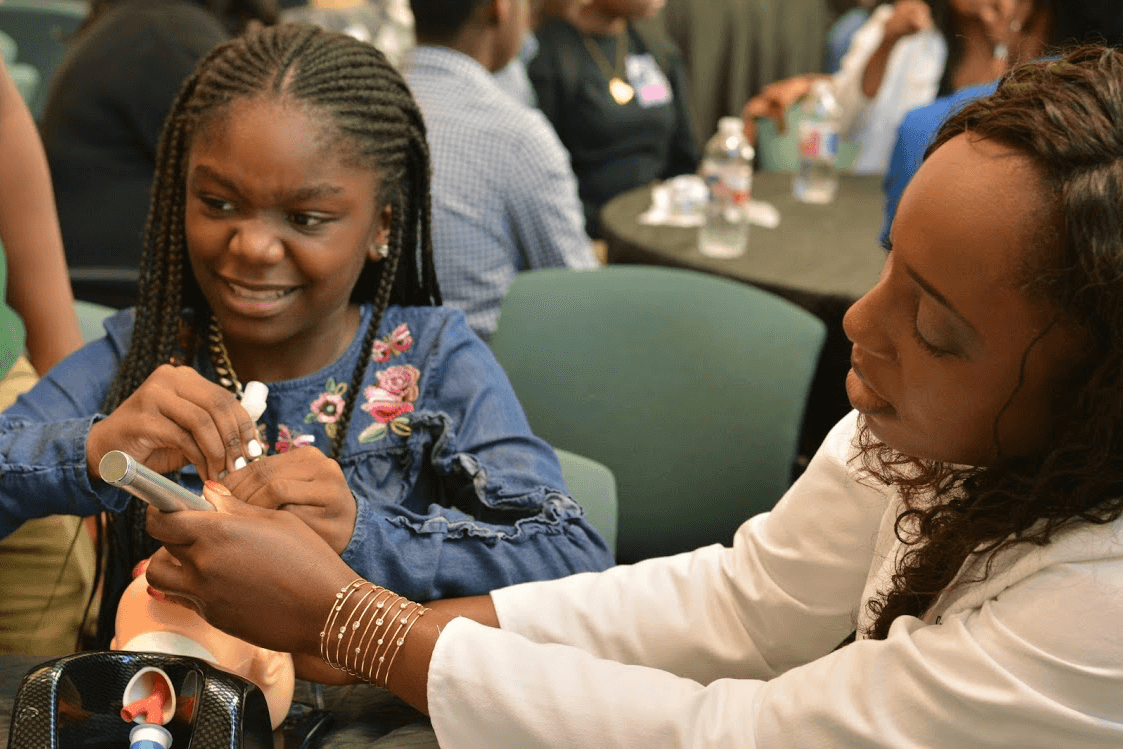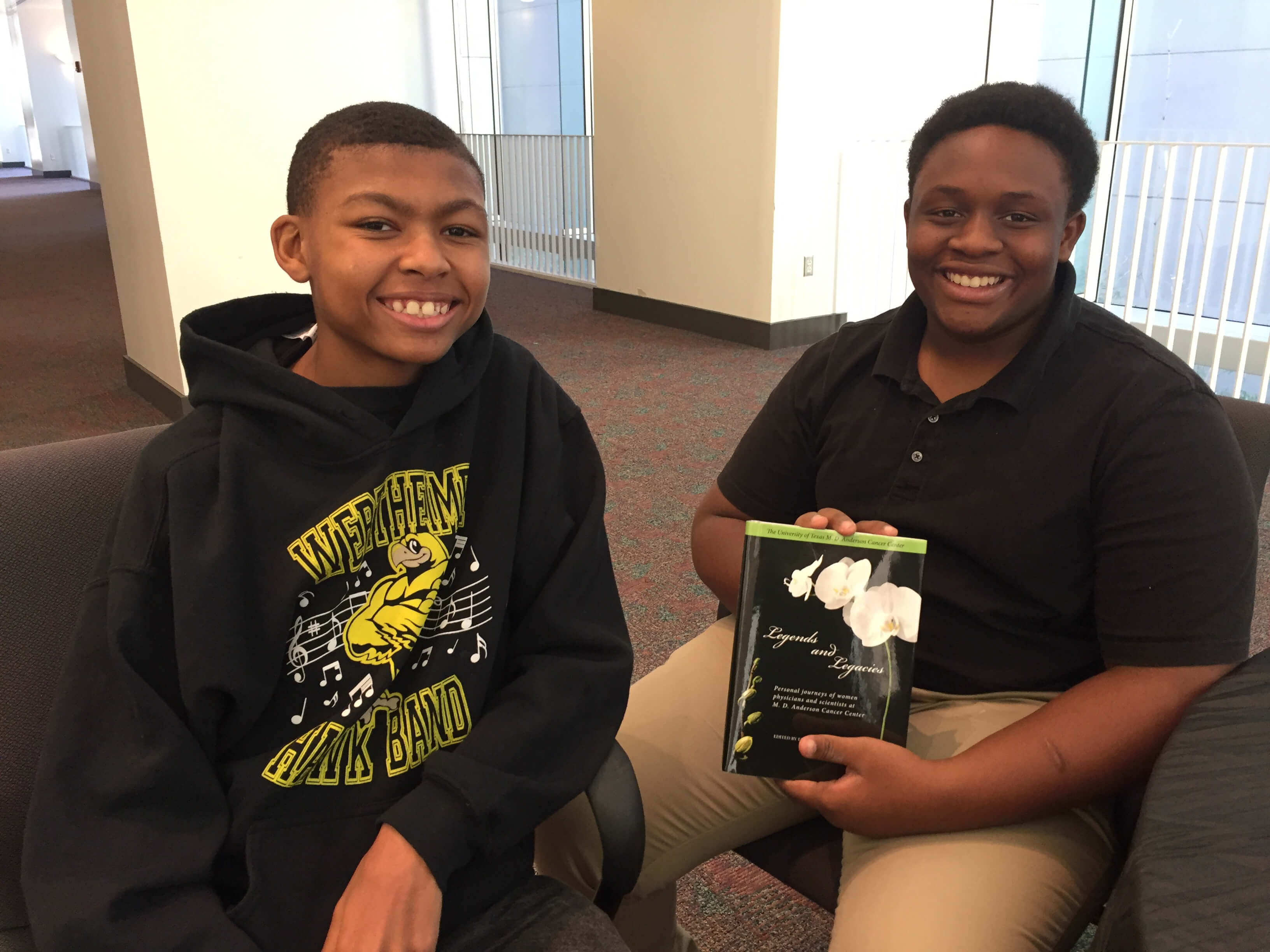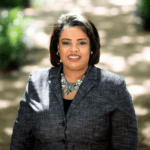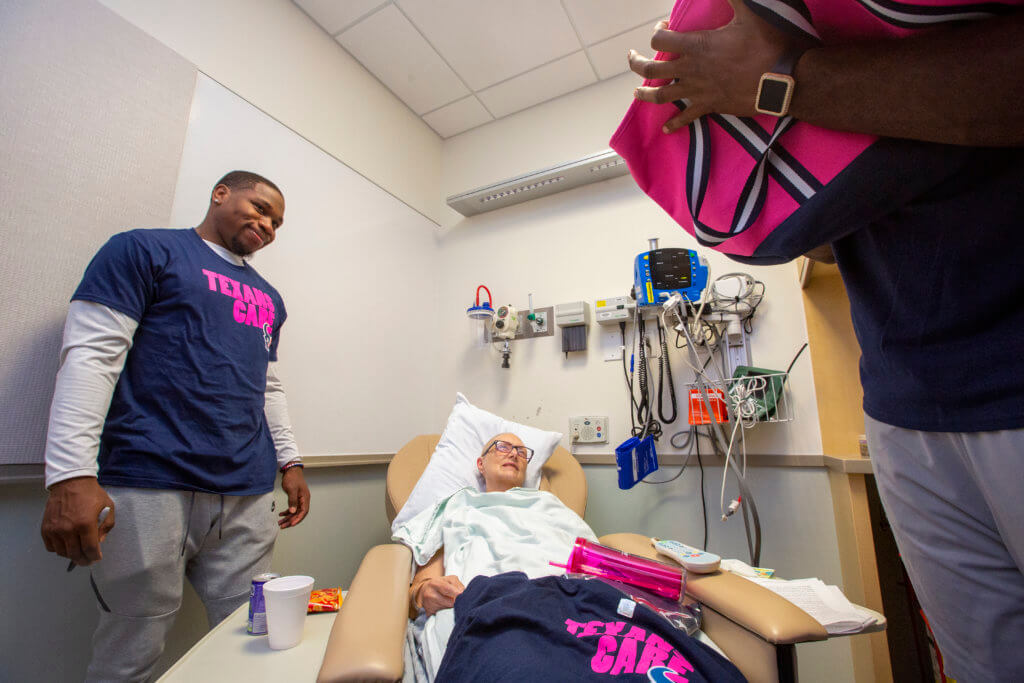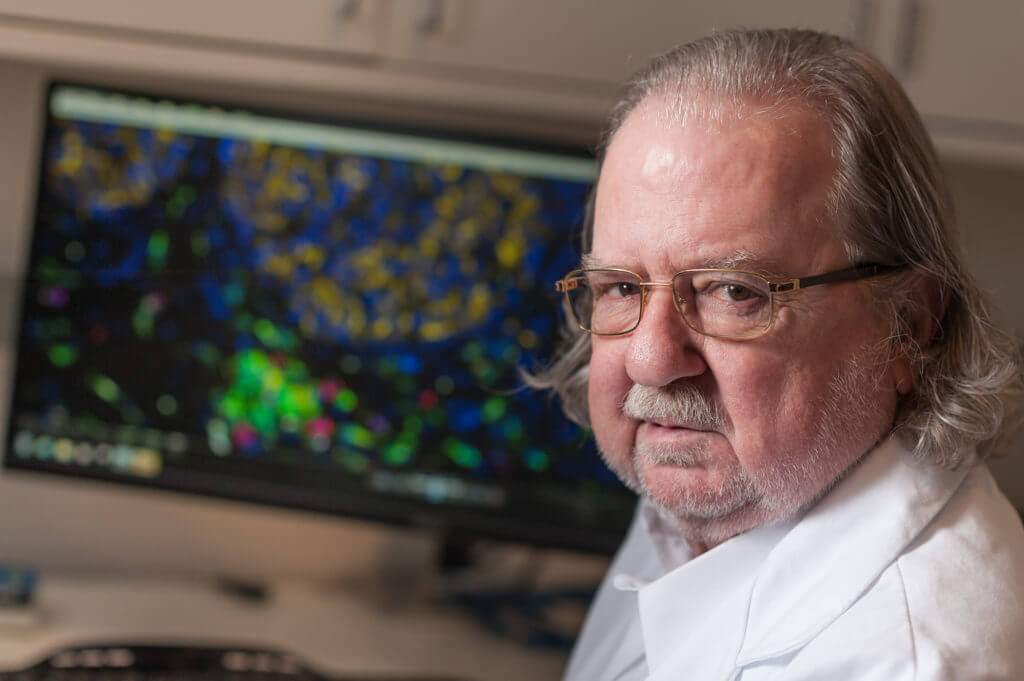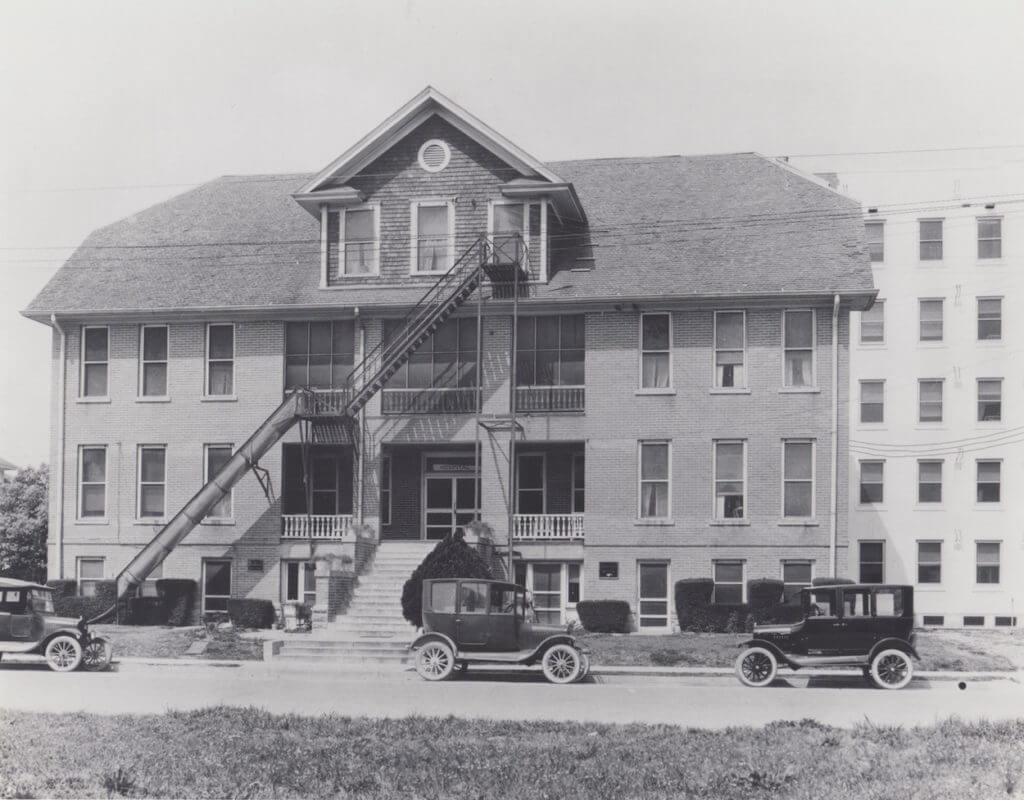“Mentoring to Medicine” presents professional possibilities to students of color
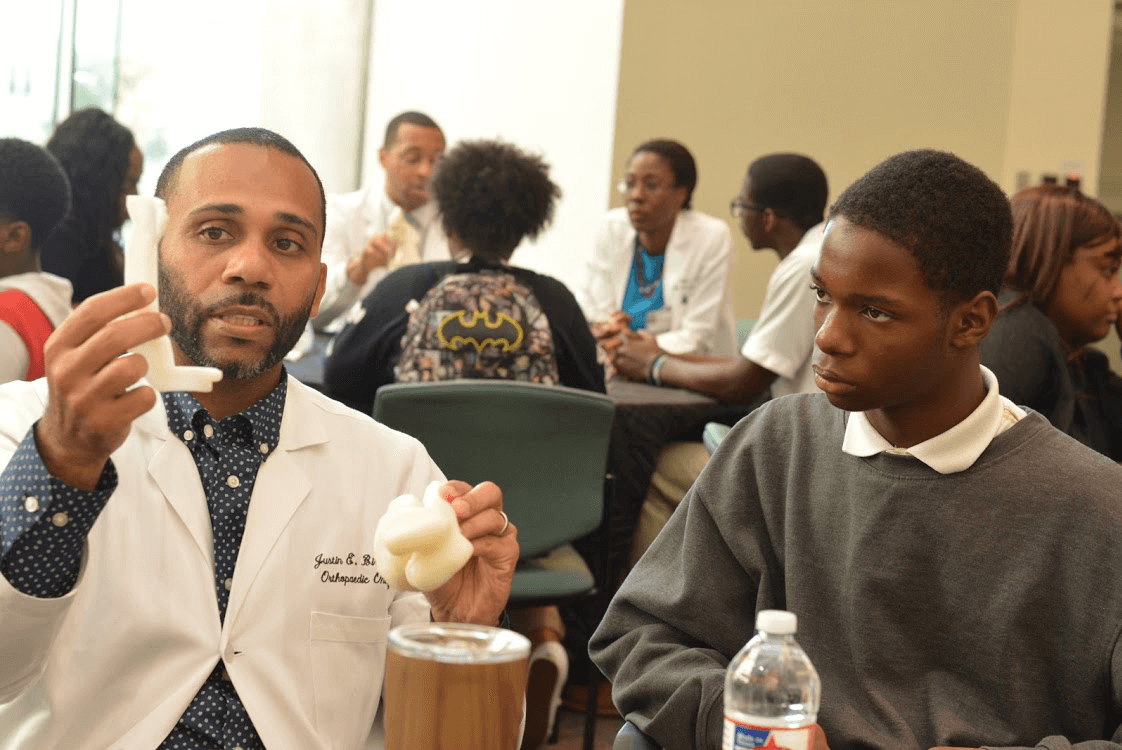
Children know what physicians do, generally, but what about specific options within medical professions? A child might wonder: What does an orthopedic oncologist do and could I learn how to do it, too? What about a pediatric anesthesiologist? Could I grow up to become a radiation physicist just like the lady with the bright smile, cocoa-colored skin and ringlet-ending braids?
Yes is the answer dozens of youngsters learned this weekend at “Mentoring to Medicine” where they were met by diverse health professionals from Texas Medical Center institutions and other Houston-area hospitals.
More than 30 mentors—most wearing white coats—represented several TMC institutions including MD Anderson Cancer Center, The University of Texas Health Science Center at Houston (UTHealth), Harris Health System, Baylor College of Medicine and UTMB Health.
The program was presented by 100 Black Men of Metropolitan Houston, a local chapter of the 100 Black Men of America, Inc. The national organization—founded in the 1960s to educate and empower children and teens—has grown into the nation’s largest network of African American male mentors. Their work with children is guided by the motto: “What they see is what they’ll be.”
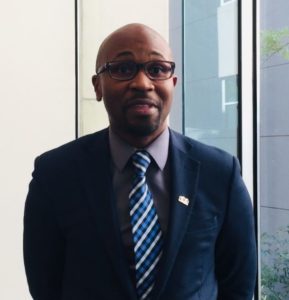
Harris Health System dentist Justin Washington, DDS, the 100 Black Men of Metropolitan Houston’s “Mentoring to Medicine” chair, talks about the program on Oct. 27, 2018. (Photo by Cindy George)
Justin Washington, DDS, a Harris Health System dentist and the “Mentoring to Medicine” chair, said exposure and interaction help this year’s 60 students focus on the future.
“We had over 30 physicians and research scientists come out to lend their Saturday morning to be mentors to students of color who have aspirations of becoming a doctor,” said Washington, who is also the health and wellness chair for 100 Black Men of Metropolitan Houston. “Each year, we try to expand this program to students in the Houston metropolitan area to give them an idea of different professions in the field of medicine. This year, we had the largest physician participation in the program’s history.”
The nation’s 40,500 black doctors represent just 4 percent of the country’s physician workforce, while 13 percent of the U.S. population is black or African-American, according to the latest data from the Association of American Medical Colleges.
Melanie Faith Washington, a 12-year-old who attends Westbury Christian School, said she intends to become an anesthesiologist.
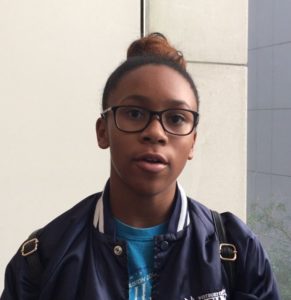
Melanie Faith Washington, 12, discusses her aspiration to become an anesthesiologist during the 100 Black Men of Metropolitan Houston’s “Mentoring to Medicine” program on Oct. 27, 2018. (Photo by Cindy George)
“Even if you don’t come from a background where you have doctors as parents or tutors every day, you can still be something great,” she said.
Nelson Guity, a Dulles High School freshman, said he found inspiration in the program even though he aims to become a U.S. Air Force pilot or engineer.
“I learned that there are different keys to success,” the 15-year-old said. “There are always road bumps. Success does not always mean fame, but happiness.”
The program, which convened in MD Anderson classrooms and common space, is a partnership with the cancer center and Baylor College of Medicine.
In addition to Washington, other mentors included: MD Anderson orthopedic oncologist Justin E. Bird, M.D.; UTHealth neurologist Shaun Smart, M.D.; MD Anderson anesthesiologist Ifeyinwa C. Ifeanyi-Pillette, M.D.; orthopedic surgeon Ugo Ihekweazu, M.D. with Texas Orthopedic Hospital; MD Anderson radiation oncologist Chelsea Pinnix, M.D., Ph.D.; radiation biologist Elizabeth Travis, Ph.D., one of the leaders in women and minority faculty inclusion at MD Anderson; pediatric anesthesiologist Queenie Wilkins, M.D., with Pearland Medical Center; and UTMB resident Laticia Stewart, M.D.
Additional mentors included: Anaeze Chidiebele Offodile II, M.D.; Ivette Rios, M.D.; Megan Kalambo, M.D.; Abdi Salahadin, M.D.; Mediget Teshome, M.D.; Jean-Bernard Durand, M.D.; Jessica Suarez Colen, M.D.; Makesha Vernee Miggins, M.D.; Debra Nana Yeboa, M.D.; Demetria Smith-Graziani, M.D.; Abib Agbetoba, M.D.; Lisly Chery, M.D.; Toma Omofoye, M.D.; and Jason Willis, M.D., Ph.D.
And that engaging radiation physicist? Julianne Pollard-Larkin, Ph.D., of MD Anderson.

